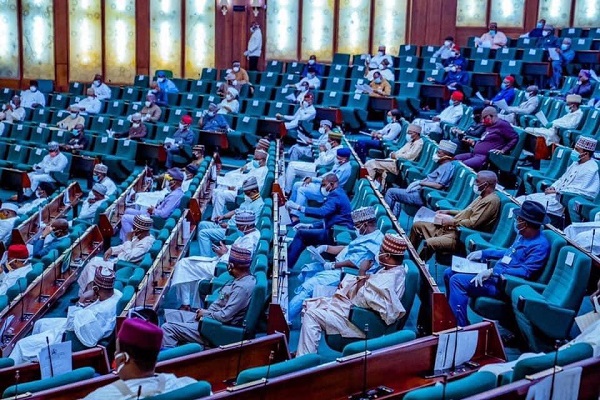Nigeria’s House of Representatives Tuesday passed for second reading a bill that seeks to sentence anyone who attempts to kill themselves to community service for six months and compulsory counselling service.
Section 327 of the Criminal Code Act states that any person who attempts to kill himself is guilty of a misdemeanor and liable to imprisonment for one year.
However, the House bill sponsored by Rep. Francis Waive (APC, Delta) is seeking to replace the prison term with compulsory counselling and community service for a period not less than six months.
The Nation reports that leading the debate on the motion, Waive said that any suicidal act with a non-fatal outcome is labelled by the World Health Organisation (WHO) as ‘attempted suicide’.
According to him, suicide is today identified as the second leading cause of death among 15-35 years old globally, while statistics indicate that 79% of global suicide is attributed to low and middle-income countries.
He said further that over the last 45 years, suicide rates have increased by about 60%; thus establishing it to be a major public health problem (WHO, mental health).
He said further that defects of mental health such as; depression, long term substance abuse disorder, schizophrenia, mood disorder, psychosis and other psychiatric disorders are the most common risk factors linked to suicidal behaviour.
He said nearly one-third of suicidal attempts repeat the behaviour within a year and some of the attempters eventually commit suicide.
He stressed that in May 2019, “it was reported that Chukwuemeka Akachi, a bright 400-level student of the Department of English and Literary Studies, University of Nigeria, Nsukka, (UNN) committed suicide by ingesting two bottles of ‘Sniper’ an insecticide.
“This was not his first attempt. Friends and family said on more than two occasions, he drank kerosene and petrol to kill himself but was either rescued or the substance was not as effective in killing him. Akachi also wrote about his struggle with mental health and the several efforts he made before the final act.”
He maintained that according to the current provision of the Act, he should be punished for his attempts (if had he not been successful in the final attempt), adding that many countries who hitherto punished non-fatal suicidal behaviors have since repealed or reviewed their laws, however, Nigeria still holds the attempters criminally liable for unsuccessful suicide acts.
He said “Suicides and attempts have been on the increase in Nigeria. This could be due to several reasons but primarily due to harsh economic conditions of the average Nigerian.
“Research has also shown a strong link between suicide and mental illness/disorder, however, it continues to be treated as a crime in Nigeria. This means that a person who survives a suicide attempt will be harassed, arrested and punished by the state with an imprisonment term of up to one year.
“This Bill suggests that suicidal people are in need of effective treatments, counselling and assistance not punishment. Penalizing attempted suicide is hardly a prevention method instead the law should direct the appropriate authorities to assist the traumatized attempters.
“Self-destructive behaviour is often a cry for help since suicide is mainly an indication of underlying mental and psychological disorder.
The criminal laws are better suited for prosecuting criminal acts not an exhibited call for help and act of distress.
“It is therefore imperative to substitute section 327 of the Principal Act which provides for a rash treatment for anyone who attempts suicide with a proposed amendment which provides that “Any person who attempts to kill himself is guilty of a misdemeanour and is liable to compulsory counselling and community service for a period not less than six month”
